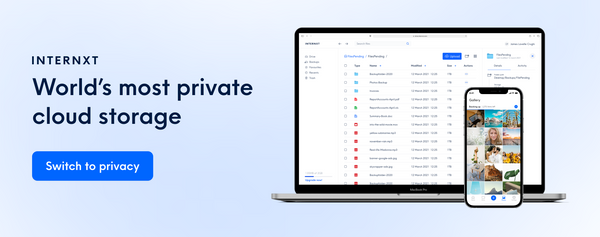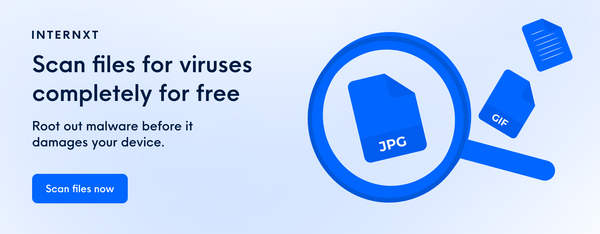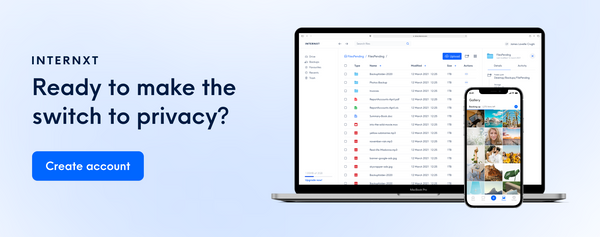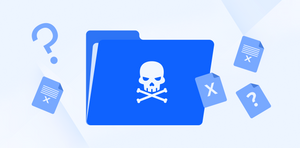Time To Sail the High Seas? What Is a Torrent and Is Torrenting Illegal
Yes and no. A torrent is a type of P2P file sharing that allows users to share and download large files more efficiently. While torrents themselves are not illegal, the files shared using torrents can be.
What Are Torrent Files And How They Work
You have probably heard or referred to some files on the Internet as “Torrent” files or simply Torrents.
Some might think of it as the only means to download copyrighted content and some probably do not know about it.
In this article, we will be giving you some clarity on Torrent files and explain how they work.
What Are Torrents?
The files that are shared using the BitTorrent protocol is simply referred to as Torrents.
In case you didn’t know, the BitTorrent protocol is a communication technique for peer-to-peer file sharing over the Internet. The files are usually scattered around a decentralized network of users from which it is then downloaded.
So, when you download a torrent file, you’re involved in a peer-to-peer (P2P) file-sharing operation using the BitTorrent protocol.
The main point of P2P systems is to distribute the potentially enormous load of uploads/downloads onto a very large number of computers and Internet connections. If you want to get something, you also have to contribute something.
Normally, you would be using a BitTorrent client like qBittorrent or μTorrent or FreeDownloadManager to download torrent files.
Now that you know what torrents are – it is important to know why torrent files are used and how they work. You can also check out a relevant video to know more about it:
Why Would You Need Torrents?
You can just download a file anyway – why do you need a torrent file specifically? Is it just because you want to download copyright materials online?
No. It is a common misconception that we’re generally talking about pirated games, movies, or software when discussing torrents, that is totally wrong.
Torrents are popular because it is an efficient decentralized method to share files on the Internet without needing to have a powerful server in order to distribute the files.
For instance, you want to share a file (potentially a large file) that you want hundreds and thousands of users to access/download – in that case, you will need to have a powerful (expensive) server with enough bandwidth that allows you host the file and let users download it as quickly as possible.
However, for torrents to work, you don’t need any of that. Once you create a torrent, you can share with any number of users you want. And, just because it is a peer-to-peer file-sharing technique, the more users connect to the torrent, the more powerful the network becomes (thereby increasing the download speed).
So, if you do not want to spend on a server to let users access a file, it’s better to create a Torrent and distribute it. In this way, you save money and your server bandwidth.
Are Torrents Dangerous?
Not necessarily. If you’re downloading something legit that has been authorized for distribution, you are good to go.
You will find a lot of websites offering a torrent file to download the ISO file of an operating system (Linux distributions). Similarly, you will find plenty of legal use-cases of Torrents.
On the other hand, you might observe a lot of copyrighted materials (pirated games, movies, software, etc.) to be commonly distributed on some Torrent websites. So, in that case, malware, adware, spyware, and similar threats might be a problem associated with them.
Merely downloading a torrent file is not illegal. However, it is important to verify what you’re downloading and whether the website you are accessing hosts legal files or pirated/copyright materials. Fret not, you can simply ask around on social media platforms or active forums if you are not sure about it, but ultimately, it is your responsibility.
The Problem With Torrents
Even though there are more benefits to peer-to-peer sharing using Torrents, there are some issues as well.
If the network of users using the Torrent is very small, the potential download speed will be very slow. So, only if you’re user that a lot of users are going to download it, creating a torrent file isn’t required.
Torrent Files: How to Access & Download Them?
For starters, you would need a Torrent client like qBittorrent or μTorrent to download them.
You can choose to download the .TORRENT file or simply click on the magnet URL (which is a crypto hash for that torrent file) to access it on the torrent client and then start downloading it.
Once, you get the right file or the magnet URL, you can easily start downloading the target file. However, you need to know about some of the key terms associated with the torrent files.
Key Terms For Torrents
- Seed / Seeder: This tells you how many users are sharing the complete file in the torrent network.
- Leech / Leecher: These are users who just download the file – but chose not to share (or upload) the file. So, the more leechers you find compared to seeders, the potential for a low download speed increases.
- Peer: It’s someone who’s downloading the file from the network of torrents.
- Tracker: A server that potentially tracks all the other users in the network.
- Swarm: When you find a group of users downloading and sharing a common file, they’re known as a swarm.
Wrapping Up
For starters, the information we put together for you should come in handy. If you have a trouble understanding, we will also recommend watching the video mentioned above.
Time To Sail the High Seas? What Is a Torrent and Is Torrenting Illegal
Frequent users of the internet have no doubt come across the term “torrent” several times.
However, most have never given it much thought or really understood what it meant or how it worked. Long story short, torrents are a popular way of sharing files over the internet.
But there’s much more to torrents than that. Below, we’ll explain what a torrent is, explore how it works, determine its advantages and disadvantages, and shine some light on whether torrenting is legal or not.
Introduction to Torrents
Before we dive into what a torrent is, let’s first understand the concept of peer-to-peer (P2P) file sharing. P2P file sharing is a method of sharing files between computers over the internet. In traditional file sharing, a file is uploaded to a central server and then downloaded by the user.
However, in P2P file sharing, the file is broken down into small pieces and shared between users. This means that instead of downloading the file from a central server, you download it from other users who have the same file.
Torrents are a type of P2P file sharing that is used to share large files, such as movies or TV shows. They work by breaking the file into small pieces and allowing users to download and upload those pieces simultaneously. This makes the download process faster and more efficient as users can download different portions of the file from various sources.
What is a Torrent?
A torrent is a small file that contains information about the file you want to download. This file is called a “torrent file.”
When you open a torrent file, it connects you to a network of other users who are also downloading or uploading the same file. These users are called “peers.” As you download the file, you also upload the pieces you have downloaded to other peers. This creates a “swarm” of users who are all sharing and downloading the same file.
How do Torrents Work?
To download a file using a torrent, you need a torrent client. A torrent client is a software program that allows you to connect to the network of users who are sharing the file. Opening a torrent file in your client connects you to the swarm of users sharing the file.
The client then downloads small pieces of the file from multiple sources and combines them to create the complete file on your computer.
Torrents use a protocol called BitTorrent, which is used to manage the download and upload of files between users. BitTorrent breaks the file into small pieces, and each piece is verified as it is downloaded to ensure that it is correct. This helps to prevent corrupted files and ensures that the file is downloaded correctly.
Advantages of Using Torrents
Torrents have several advantages over traditional file-sharing methods.
First off, they are faster and more efficient. Since the file is broken down into small pieces, users can download and upload different pieces simultaneously. This means that the download process is faster, and users can get the file they need more quickly.
Second, torrents are more reliable. Since the file is downloaded from multiple sources, users are less likely to encounter issues such as slow download speeds or broken downloads.
Lastly, torrents are more cost-effective. Since you are downloading the file from other users, you don’t have to pay for bandwidth or server costs.
Is Torrenting Legal?
The legality of torrenting is a complicated issue. While torrents themselves are not illegal, the files that are shared using torrents can be. Many copyrighted files, such as movies, TV shows, textbooks, and music, are shared using torrents illegally.
Downloading or sharing copyrighted material using torrents is illegal and can result in fines or even imprisonment. However, not all files shared using torrents are illegal. Many open-source software programs and other files are shared legally using torrents.
Understanding Copyright Infringement and Piracy
Copyright infringement is the unauthorized use of copyrighted material. Piracy is the act of using copyrighted material without permission for personal gain. Downloading or sharing copyrighted material using torrents is a form of piracy and is illegal.
It is important to understand the consequences of piracy. Piracy hurts the creators of the content and can result in financial losses. It also undermines the value of intellectual property and can lead to a decrease in creativity and innovation.
Risks of Torrenting
While torrenting is a convenient way to access files, it comes with several downsides. Moreover, downloading copyrighted material using torrents can result in negative legal consequences.
One of the biggest downsides to torrenting is that it is often associated with piracy. Many people use torrents to download copyrighted content, which is illegal in many countries. This has led to numerous legal battles between content creators and torrenting websites. In some cases, people who have been caught pirating content through torrents have faced hefty fines or even jail time.
Another downside to torrenting is that it can be risky for your computer. Torrenting can be harmful to your devices, especially if you are downloading files from unknown sources.
Malware and viruses can be easily hidden in files shared using torrents, and downloading these files can infect your computer. Since you are downloading files from multiple sources, it can be difficult to know if the files are safe.
The malware and viruses that may be hidden in torrent files can infect your computer and cause serious damage. It is important to use a reputable antivirus program and to be cautious when downloading any kind of file through torrents.
Torrenting can also be slow and unreliable. Since you are downloading files from multiple sources, the download speed can vary greatly. In some cases, it can take several hours or even days to download a large file through torrents.
Additionally, if one of the sources that you are downloading from goes offline, the download may be interrupted or fail altogether.
Torrenting Safely and Securely
To torrent safely and securely, it is important to take certain precautions.
Always use a reputable torrent client. There are many free torrent clients available, but not all of them are safe to use. Do your research and choose a client that is trusted and has good reviews.
Avoid downloading files from unknown sources. Stick to well-known torrent websites that have a good reputation.
It’s wise to use a virtual private network (VPN) when torrenting. A VPN creates a secure connection between your computer and the internet, protecting your privacy and hiding your IP address.
Popular Torrenting Websites
Torrent websites have been around for quite some time and are a popular means of sharing files online. What is a torrent website? Well, it’s simply a site that hosts these torrent files, making them available for download to anyone with a BitTorrent client.
The Pirate Bay
The first on our list is The Pirate Bay, which is arguably the most famous and controversial torrent website.
It has been around since 2003 and has faced numerous legal challenges over the years, but it still remains a go-to site for many users. The Pirate Bay has a vast collection of torrents, including movies, TV shows, music, games, and software.
1337x
Next up is 1337x, which is known for its clean and user-friendly interface. It has a massive library of torrents, and its search function is excellent, making it easy to find what you’re looking for. Additionally, 1337x has a section for verified torrents, which ensures that users are downloading safe and authentic files.
RARBG
Third is RARBG, which has been around since 2008 and has built a reputation for providing high-quality torrents. It has a vast library of movies, TV shows, and games, and its torrents are often of exceptional quality. However, RARBG is blocked in many countries, so users may need to use a VPN to access it.
Torrentz2
Fourth on our list is Torrentz2, which is a meta-search engine that searches multiple torrent websites at once. It has a simple and straightforward interface and is known for its speed and efficiency. Torrentz2 does not host any torrent itself but instead provides links to other torrent websites.
LimeTorrents
Last but not least is LimeTorrents, which has a massive library of torrents across multiple categories, including movies, TV shows, games, music, and anime. It has a simple and user-friendly interface, and its torrents are often of high quality.
LimeTorrents is unique in that it has a section for verified torrents, ensuring that users are downloading safe and authentic files.
Alternatives to Torrenting
No matter which site you decide to use, remember it’s important to note that downloading copyrighted material through torrents is illegal in many countries and can lead to some serious consequences.
If you want to avoid the risks associated with torrenting, there are several alternatives you can use. Some popular alternatives include direct downloads, Usenet, and file hosting services such as Dropbox or Google Drive.
Can You Trust Torrents?
Yes and no. A torrent is a type of P2P file sharing that allows users to share and download large files more efficiently. While torrents themselves are not illegal, the files shared using torrents can be.
Downloading or sharing copyrighted material using torrents is illegal and can result in legal consequences. It is important to torrent safely and securely to avoid risks such as malware or legal consequences.
So, to torrent or not to torrent? That is entirely up to you. Torrenting has many upsides and definite (legal) downsides, so torrent at your own risk. Whatever you decide to do, be safe out there. The web is a wild place.
Microsoft Onedrive Review and the Best Alternatives for Your Cloud Storage Needs
As the cloud storage world expands, so does the competition for the crown of best online cloud storage provider, leaving many people wondering which is the best cloud storage option for them. In this case, it’s time to put Microsoft OneDrive under the microscope in this OneDrive review. We ask
Sep 21, 2023 9 min read
Data Loss Prevention: Learn Types, Challenges, and Tips to Secure Your Data
What is data loss prevention? Data loss prevention is a security solution to detect and prevent sensitive data utilization. A data loss prevention strategy is necessary for organizations wishing to avoid data breaches and destruction. Even if an organization has a solid data loss prevention routine in place, it does
Sep 19, 2023 10 min read
Data Breaches of 2023 that Left Healthcare Industries in Critical Condition
The EU Healthcare system is under attack. Between January 2021 and March 2023, the health sector faced various cybersecurity incidents, endangering the confidential information of hospital and patient data. For the 13th year in a row, the healthcare industry reported the most expensive data breaches, averaging a cost of USD
Torrent
We sometimes use affiliate links in our content, when clicking on those we might receive a commission – at no extra cost to you. By using this website you agree to our terms and conditions and privacy policy.
What Does Torrent Mean?
A torrent is a file type used by BitTorrent file-sharing protocol. It authorizes and points to a remote server that contains the location of different remote hosts with an instance or part of the file to be shared or downloaded.
Advertisements
A torrent file is a metadata file type that primarily stores the URLs of host servers that manage the communication, data transferring and other protocol-specific administration in the file-sharing and downloading process.
Techopedia Explains Torrent
The torrent file type is an integral component of the BitTorrent file sharing mechanism, which relies on this file to effectively ensure error-free downloading. A torrent file is created by a central BitTorrent-enabled host server, which embeds the URL of different trackers that serve as the bridge between the host on which the file needs to be downloaded and the remote peers seeding the pieces of the original file.
Besides a tracker URL, a torrent file may also contain information such as the name of the file, its author or creator, its size, the pieces of the file and their size and location.








